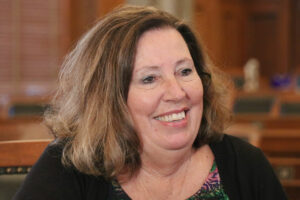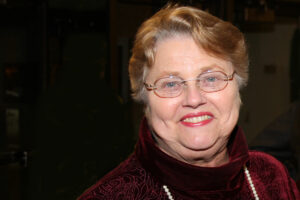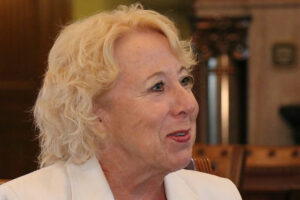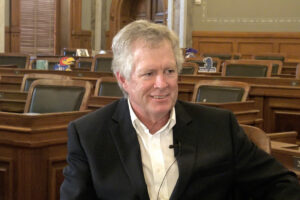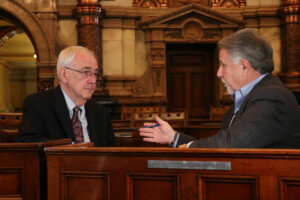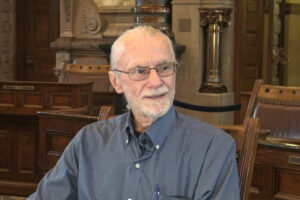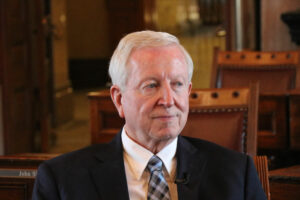Interview of Darlene Cornfield, October 9, 2020
Interviewed by Patty Clark
Former State Representative Darlene Cornfield reflects on her six sessions in the Kansas House representing the 90th House District (Sedgwick Co.). She describes the issues that come back year after year and the challenges faced by a new legislator. She identifies the difficulties faced by conservatives at a time when the Republican party was undergoing an ideological change. Cornfield observes that the citizen legislature is most effective but did not favor term limits.

